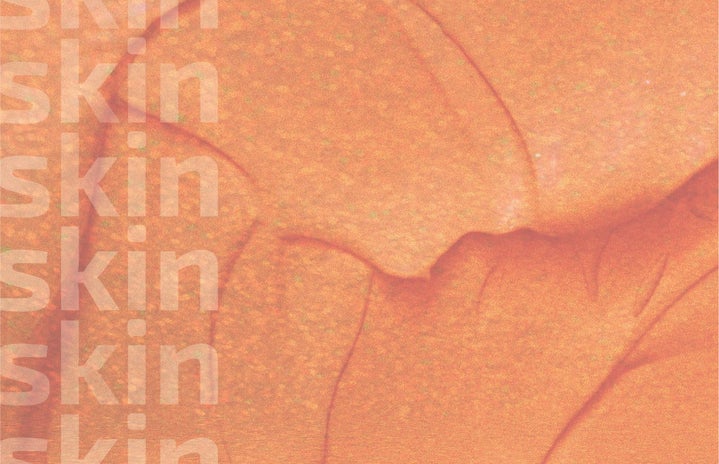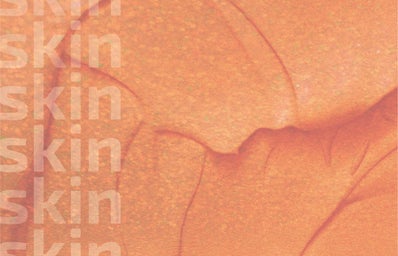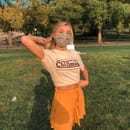I’ve had two incredibly formative skin experiences in my life: the first, in eighth grade, when I started ProActive to clear what I thought at the time to be mild acne caused by hormonal imbalances and becoming a teenager. The second, at twenty years old, trying to find a skin routine that would protect my skin from aging in years to come and balance out the breakouts and blemishes that none of my friends seemed to experience.
Both instances resulted in tragedy – or, at least, what could be categorized as a large blow to my self-esteem.

I can’t really remember using anything specific on my skin before I started ProActive: a trend that lasted only a few days. I started using the products because of what I was seeing on TV – remember when Hayden Panettiere was a spokesperson for the brand? Being Hayden was my 2000’s Ice Princess dream. Yet, sure enough, the products caused a terrible breakout that was disastrous for my skin. I never was able to get it back to where I was post Panettiere aspirations – even though that meant my skin at twelve years old.
The only products I used in high school were extremely drying: my breakout strategy was to make my skin so dry that there were no oils left to contribute to a breakout.
Of course, that didn’t work.
And now, I am twenty years old and have no idea how to take care of my skin.
At 15, the beauty standard wasn’t clear skin: we recognized that what was desirable was the perfectly airbrushed look produced by makeup products. Sure, we prized “natural beauty” in what trolls now call the, “no makeup, makeup” look, and recognized when someone had really nice, clear skin, but we weren’t focused on achieving the natural glow that is so popular now.
Trend after trend of skin clearing products influences what we do to our skin. We take advice from self-declared “skin guru’s” on TikTok that may, in reality, just have figured out what works for their skin.

A few months ago, I started a skincare line recommended to me by a family friend. It was expensive, naturally driven and had great reviews. The only products I received were the cleanser and moisturizer (something I had never worked into my routine of drying agents). Yet, after two weeks, my skin was worse than it had ever been before. Sure, you may deal with “purging” when you start a new effective product, but my skin continued to do this for over six weeks. I was breaking out in areas I had never had issues with, experiencing post acne scarring and severe dry patches that again, had never been an issue when I was using drying agents.
Now, nearly a month after stopping the use of those products my discoloration, blemishes, and scarring are no better. I frantically called the dermatologist to make an appointment, only to be told I wouldn’t be able to get in until early June: five months from my original call.
So much of our self-worth is determined by feeling comfortable in your own skin. My skin could definitely be worse: I’ve never experienced cystic acne, rarely struggle with body acne, and generally can “clear” my skin when I’m receiving regular exposure to Vitamin C.
The statement is not, “it could be worse,” but rather, “I don’t feel like myself.” It’s always difficult not to put yourself in competition with others; for me, what’s worse is feeling foreign in my own skin.
Skin is complicated; it’s the largest organ on the human body and doesn’t work the same for everyone. It’s incredibly frustrating to see others develop a skin care routine with products that are detrimental for your own skin. It’s a constant funnel of money, energy, mental stamina to search for what works for you.
I’ve always considered acne to be a teenage problem. At 15, I never would have imagined I would be struggling more with my skin now. When you’re a teenager, skin problems are normalized and accepted because of their connection to puberty and hormones is known. Now, I see so few people whose skin struggles are similar to mine. It seems to be “embarrassing” to have skin problems when three years ago it was normal.

In the world of self-love and self-care, skin issues are vastly under covered. We normalize teenage breakouts and champion girls who embrace their breakouts but look down on those who don’t know what to do with their skin. Dermatology appointments are hard to come by, leading to rabbit hole searches of social media and Google to find what may work for you according to what works for someone else.
I struggle to embrace what I see in the mirror every day; I still don’t know what to use on my skin and hesitate to use any new products for fear of an even worse breakout. I now have to change what I’ve built up in my mind as “feeling like myself.”
Even so, I will continue Googling my problems and hoping I stumble across a miracle product. If nothing else, it’s comforting to know that someone else out there is struggling in the same way.



